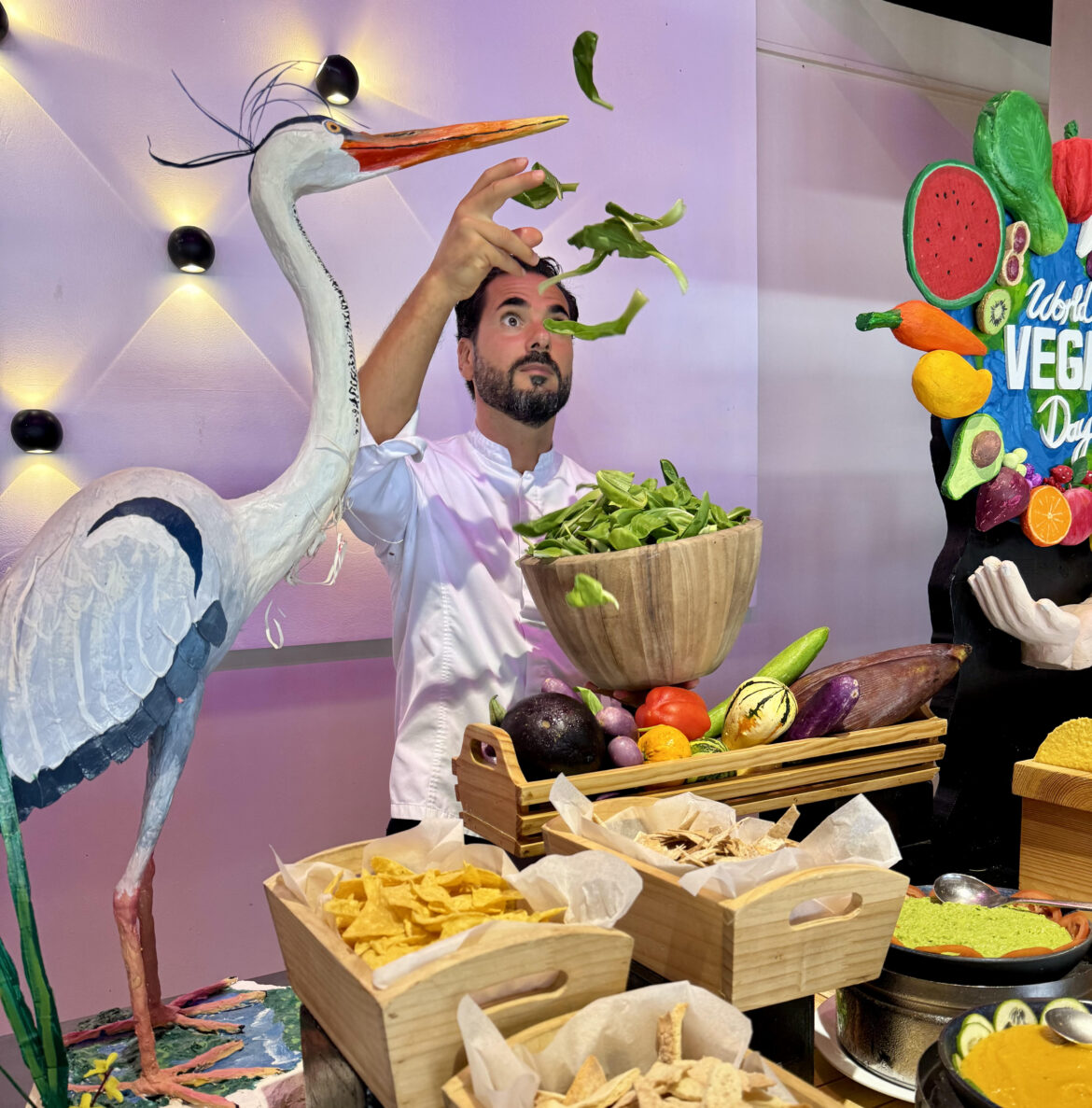Every year on November 1st, the world celebrates World Vegan Day.
For many, it’s a reminder of plant-based diets and environmental choices.
For Chef Cristian Marino, it’s a moment to think beyond the word vegan — to reflect on what it truly means to eat with awareness.
After more than twenty years in professional kitchens around the world — from Stresa to Dubai, from the Mediterranean to the Maldives — Chef Marino has learned that food trends come and go, but awareness stays. Whether it’s a vegan, keto, or flexitarian movement, the essence of conscious dining remains the same: to understand what we eat, why we eat it, and how it affects not only our bodies but also our planet and the people around us.
Awareness, Not Labels
In the kitchen, labels are easy.
Chefs categorize everything — vegan, gluten-free, lactose-free, organic. But real awareness is not about labels. It’s about intention.
Over the years, Chef Marino has met guests who call themselves vegan but still consume highly processed foods every day, and others who eat everything, yet choose local vegetables, whole grains, and balance their meals with mindfulness.
Who is more aware? The one who follows the label, or the one who listens to their body and respects nature’s rhythm?
For Marino, awareness is the first ingredient of any healthy recipe. Before cutting a vegetable or choosing a protein, he believes chefs must first ask: what story does this ingredient tell?
Awareness begins long before cooking — it starts in thought.
From Restriction to Respect
When he began his career, “vegan” often meant restriction — what couldn’t be cooked, served, or enjoyed.
Today, Marino sees it differently. The new generation of chefs has transformed that limitation into inspiration.
Cooking without animal products pushes creativity. It challenges texture, depth, and flavor. It invites a rediscovery of ingredients once forgotten — lentils, chickpeas, millet, ancient vegetables.
It’s not about removing something; it’s about re-learning balance.
Respect replaces restriction.
Respect for animals, certainly, but also for farmers, for soil, and for those who sit at the table and trust the chef with their meal.
A Personal Shift
Chef Marino has never been vegan, but in recent years he has started to eat less red meat.
Not because of trends or guilt, but because his body — and perhaps his intuition — told him it was time.
He feels lighter, more focused, and more aware of how food influences energy and wellbeing.
This personal change has also influenced the way he leads his teams.
In his view, leadership in the kitchen is not about imposing rules, but about inspiring awareness.
When a young cook chooses to taste every sauce, to question where an ingredient comes from, or to suggest a lighter alternative for a guest — that’s awareness in action.
And that’s where true leadership begins.
The Modern Table
The modern dining table is not defined by what’s served, but by how it’s served.*
Whether in fine dining or at a relaxed island buffet, today’s guests seek connection — to the story behind the food, to the chef’s philosophy, to the idea that every dish has a purpose beyond taste.
During his consultancy for island resorts, Marino began introducing more vegetarian and vegan options — not as an obligation, but as an expression of inclusion.
A plate of beetroot carpaccio or coconut-pumpkin soup can be as elegant and fulfilling as any seafood dish.
Often, it leaves a deeper impression because it carries a message of simplicity and balance.
The Vegan Lesson for Every Chef
One doesn’t have to be vegan to learn from veganism.
Its greatest lesson is empathy — empathy for animals, the environment, and the human body.
Empathy also defines great leadership in the kitchen.
When chefs understand others — their needs, beliefs, and dietary choices — they become not only better professionals but also better people.
For Chef Marino, a conscious chef doesn’t just cook food; he cooks understanding.
That’s the kind of energy guests feel even before tasting the first bite.
Beyond Vegan
Beyond veganism lies a broader philosophy — a way of cooking and living that values awareness over ideology, balance over extremes, and respect over rules.
In a world where everything moves fast — from food to opinions — slowing down to choose, cook, and eat with intention becomes an act of quiet revolution.
Chefs, Marino believes, have both the privilege and responsibility to guide that change — one plate, one guest, one conversation at a time.
And as human beings, we all have the chance to rediscover the pleasure of eating not just for taste, but for life itself.
Because beyond vegan, there’s awareness — and awareness, like good food, is something we all can share.


Dining and Cooking